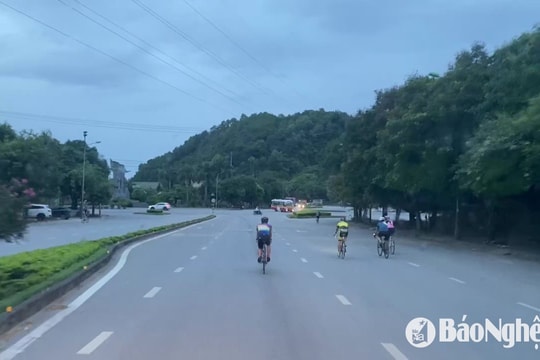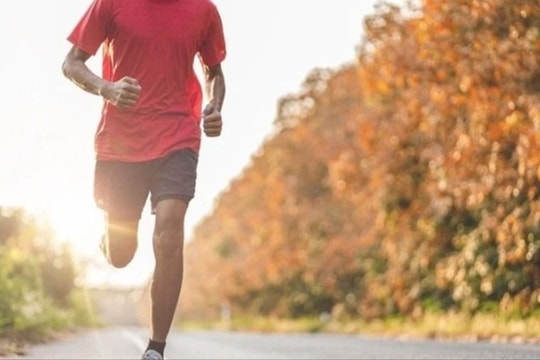5 things you should never do when you have heatstroke or exhaustion
Prolonged hot weather has a significant impact on health, making people and pets susceptible to illness, which can lead to death.
Heat makes the body more susceptible to dehydration, which can cause increased thirst, weakness, dizziness, palpitations and fainting.
Heat exhaustion occurs when the body loses water and salt through excessive sweating without being able to replenish the water. Heatstroke usually occurs when the body loses its ability to cool itself, and in these cases, the patient needs immediate emergency care.
|
| On hot days, you should drink more water than usual before you feel thirsty. |
Who is susceptible to heatstroke?
Hot weather and prolonged high temperatures affect most living things. How to keep yourself, your family and your pets safe, and what diseases can you expect in the extreme weather conditions that are covering many countries around the world?...
Signs of heat-related illness: Prolonged exposure to high temperatures leads to heat exhaustion, which is often accompanied by dehydration. If left untreated, heat exhaustion can progress to heat stroke, which can be fatal.
On hot days, modify your routine, such as exercising indoors, which is safer than exercising outdoors. Schedule outdoor activities for early morning or late afternoon when the temperature is cooler. Drink plenty of water and know the signs of heat-related dehydration, which can occur when exercising or working in hot weather.
|
| Working in the sun is very susceptible to heatstroke. |
Children are susceptible to heat-related illnesses, especially dehydration when playing outdoors, because they often do not have the awareness to replenish water regularly for their bodies, only drinking a lot of water when they are extremely thirsty. That is the reason why children are at higher risk of heat-related illnesses than adults.
Pets are living beings too, so they can get dehydrated, get heat stroke, or get sunburned, and heat illness in pets can easily be confused with other illnesses. Some symptoms that pets can experience from heat include seizures or even death.
Some tips to protect your health in hot weather
The US Centers for Disease Control and Prevention (CDC) recommends:
- On hot days, you should drink more water than usual. The heat makes people sweat more, so you should drink water before you feel thirsty to avoid dehydration.
Do not take aspirin and acetaminophen when suffering from heatstroke because it can increase the risk of bleeding, causing serious health effects.
- If you have to work outdoors or exercise, you should drink 2-4 glasses of water per hour. You should not replenish water with soft drinks or alcoholic beverages.
- People over 65 years old and infants should not go out in hot weather. If the elderly have symptoms such as cramps, headaches, nausea, they need to call for help immediately.
- For young children who are often busy playing, the risk of heat-related illnesses is higher than in adults because children often do not drink enough water on their own. Warning signs of heat-related illnesses in children appear relatively later than in adults.
- Children should not be left alone in a car, even for a short time.
- To treat suspected heat-related illnesses, take the patient to a cool place, lie down, drink water, and cool the skin by applying wet cloths to the skin.
Things you should never do when you have heatstroke, heat exhaustion or heat stroke:
- Refusing or not calling for medical assistance: this is a wrong decision and can have serious consequences if the patient has heat stroke, or shows signs of shock, convulsions, or loss of consciousness.
- Taking certain medications: many people when feeling unwell, specifically in the case of heatstroke, often take aspirin or acetaminophen. This will make the illness worse because these are two medications that can increase the risk of bleeding, causing serious health problems because the patient's skin may be sunburned and blistered.
- Do not give anything by mouth to the patient if they are unconscious or vomiting, as there is a risk of suffocation.
- Many people often think that rubbing alcohol on the body will cool down quickly. This is very dangerous for the patient because alcohol cools the body too quickly, leading to strong temperature fluctuations in the body. It is best to cool down the patient's body with cold water.
- Supplementing water and electrolytes is correct, but do not drink too much too quickly, as it can cause shock. Follow your doctor's instructions.
The most important thing to protect health in this harsh weather is that each person needs to increase their knowledge to prevent disease, have appropriate treatment to protect their own health or in case someone needs help.










